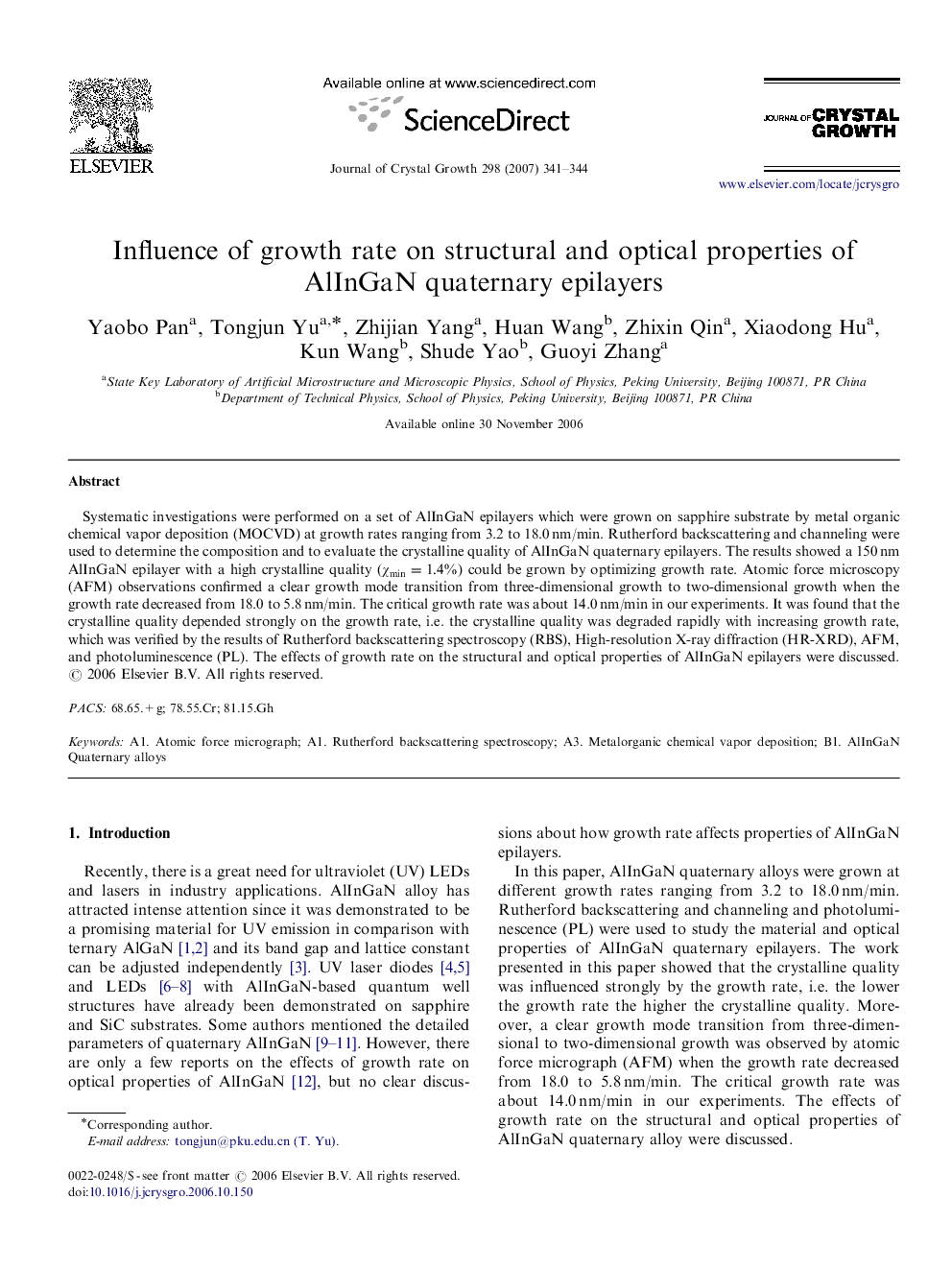| Article ID | Journal | Published Year | Pages | File Type |
|---|---|---|---|---|
| 1795941 | Journal of Crystal Growth | 2007 | 4 Pages |
Abstract
Systematic investigations were performed on a set of AlInGaN epilayers which were grown on sapphire substrate by metal organic chemical vapor deposition (MOCVD) at growth rates ranging from 3.2 to 18.0Â nm/min. Rutherford backscattering and channeling were used to determine the composition and to evaluate the crystalline quality of AlInGaN quaternary epilayers. The results showed a 150Â nm AlInGaN epilayer with a high crystalline quality (Ïmin=1.4%) could be grown by optimizing growth rate. Atomic force microscopy (AFM) observations confirmed a clear growth mode transition from three-dimensional growth to two-dimensional growth when the growth rate decreased from 18.0 to 5.8Â nm/min. The critical growth rate was about 14.0Â nm/min in our experiments. It was found that the crystalline quality depended strongly on the growth rate, i.e. the crystalline quality was degraded rapidly with increasing growth rate, which was verified by the results of Rutherford backscattering spectroscopy (RBS), High-resolution X-ray diffraction (HR-XRD), AFM, and photoluminescence (PL). The effects of growth rate on the structural and optical properties of AlInGaN epilayers were discussed.
Related Topics
Physical Sciences and Engineering
Physics and Astronomy
Condensed Matter Physics
Authors
Yaobo Pan, Tongjun Yu, Zhijian Yang, Huan Wang, Zhixin Qin, Xiaodong Hu, Kun Wang, Shude Yao, Guoyi Zhang,
